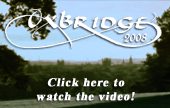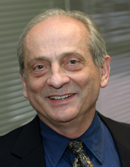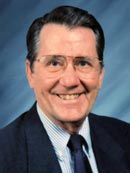|
C.S. Lewis Summer Institute
The Self & the Search for Meaning
Full Conference : July 28-August 8 |
|
Week 1 (Oxford) : July 28-August 2 |
Week 2 (Cambridge): August 3-8 |
Science & Theology Symposium |
As part of the afternoon program, conferees may choose from any of the Afternoon Electives: Academic Paper Sessions, Symposia, Seminars and Workshops.
OX-01 & CAM-01
WHAT DOES IT MEAN TO BE HUMAN?
FROM THE SELF TO THE PERSON AND BEYOND
Dr. Paul Vitz, Symposium Chair
Dr. Phil Lueck, Symposium Director
Oxford: July 29, 30 and 31
Cambridge: August 4, 5, and 6
Sessions: 2:30-5:00 p.m.
The Oxbridge 2008 Science & Theology Symposium seeks to address the scientific and theological implications of our main conference theme: “The Self and the Search for Meaning.” Over the two weeks in Oxford and Cambridge our presenters will walk us through some of the key issues and challenges involved in the human quest of what it means to be human. With time for questions and answers at the end of each session, plus the Wrap-up Panel at the end of the second week, attendees should have ample opportunity to ask questions, hear answers, and begin to formulate their own conclusions.
THEME
The human quest, reflected in the question part of our symposium theme, has been through a series of turning points during the last several centuries.
Prior to the eighteenth century Enlightenment our question was usually answered, according to historic Christian faith, by appealing to the theological concept known as “substance-dualism.” The human self/person is both a body and a soul.
Beginning in the early and mid-nineteenth century, this theological concept has met with serious rejection in the scientific community in the form of “reductive physicalism.” David Brooks, of the New York Times, says this is reflected in Tom Wolfe’s 1996 essay entitled: “Sorry, but Your Soul Just Died,” in which Wolfe captures the militant materialism of some modern scientists.
In the late nineteenth and early twentieth century, the human quest seemed focused on the selfas a “black box.” and the search for the “psycho-analytical self.” In the middle of the twentieth century the human quest seemed to break out of the “black box” and could be described as a time of the “pharmacological person” in search of the “therapeutic self.”
In the late twentieth and early twenty-first century we have seen several new turning points, especially in the fields of genetics and neuroscience. These have served to sharpen the issues and deepen the debate and push the human quest into the “beyond.”
There is even a strong resistance from some within the theological community in the form of “non-reductive physicalism.” Both of these perspectives (substance-dualism and non-reductive physicalism), which also raise significant ethical questions, will be represented amongst our speakers.
SPEAKERS
Paul Vitz, our symposium chair, will introduce us to the complexity of our humanity through the intriguing analogy of “the person as a resonating laminate.”
Douglas Huffman, New Testament scholar, will lay some biblical theme foundations.
John Cooper, philosophical theologian will frame the theological trajectories involved in the human quest.
Francis Collins, director of the Human Genome Project, will explore and explain the genetics implications of our human quest.
Richard Swinburne, premiere philosopher, will present a double-session defending the substance-dualism view of the human person.
John Polkinghorne, scientist and a clergyman, will help us understand how the two disciplines of science and theology have and/or should interface. Traditional models of conflict, compartmental, and complementarity will be explored and explained.
Nancey Murphy will propose and defend the non-reductive physicalism view. This perspective is one of the leading alternatives to the traditional substance-dualism view.
R. J. Berry, biologist, will explore the biological evolutionary dimensions to the human quest.
Nigel Cameron, Christian ethicist, will address the bioethical implications of the human quest.
Malcolm Jeeves, premier neuroscientist, will give us a summary of the recent developments in the human quest.
Paul Vitz — Professor and Senior Scholar at the Institute for Psychological Sciences, a Catholic Graduate School in Arlington, VA. For many years he was Professor of Psychology at New York University. His work is focused on the integration of Christian theology and psychology, breaking from the secular humanism and post-modern relativism prevalent today. Dr. Vitz's books include Psychology as Religion: The Cult of Self-Worship; Sigmund Freud's Christian Unconscious; Modern Art and Modern Science: The Parallel Analysis of Vision; and Faith of the Fatherless: The Psychology of Atheism. Vitz is on the Advisory Board of the Catholic Educator's Resource Center. He has published well over 100 articles and essays. An on-line resource for his published works may be found at www.paulvitz.com
Philip E. Lueck — Professor of Bible/Distance Education at Northwestern College (MN), served 14 years as a pastor and now 38 years as a college professor. His doctorate, from Trinity International University, is in biblical hermeneutics, and his areas of focus are on the integration of faith and learning, interdisciplinary studies, with special interest on the interface of science and theology and the philosophy of science. He has a co-authored textbook on hermeneutics, which is forthcoming. He is the Founder-Director of the James Orr Center for Worldview Studies, a bridge ministry between the academy and the church for developing worldview disciples to engage their culture for Christ. He is also an associate of the MacLaurin Institute, a Christian Study Center at the University of Minnesota where he helps develop and teach worldview studies. He is a member of the American Academy of Religion, the Society of Biblical Literature, the Evangelical Theological Society, the Evangelical Philosophical Society, the American Scientific Affiliation, the Center for Bioethics and Human Dignity, the American Association for the Advancement of Science, and The Polanyi Society. To read his essay on “What it Means to be Human” click here.
|





